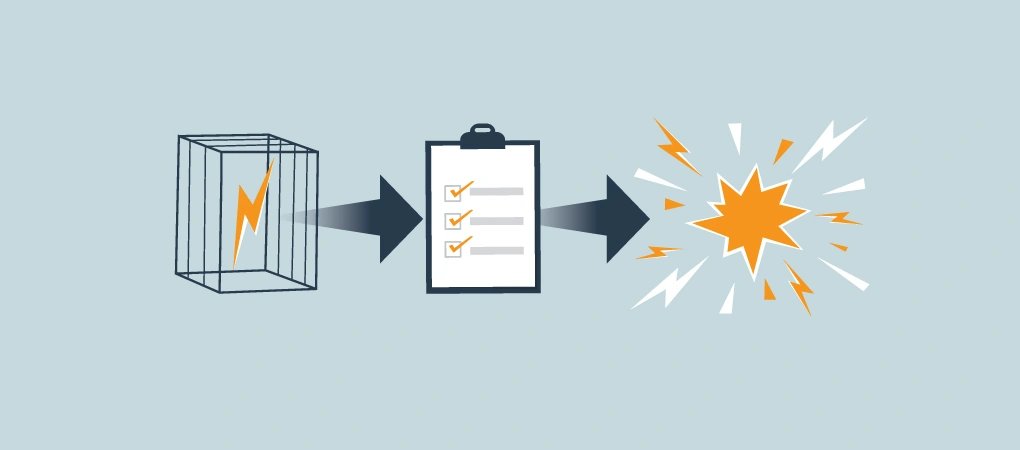What Are The Signs Of Imposter Syndrome? (Overcome Imposter Syndrome Anxiety)
Dan Sullivan

Recently, I was asked to give my advice on how entrepreneurs can overcome imposter syndrome, and I have to say, it caught me off guard. Truthfully, I have not experienced imposter syndrome in my life—but I certainly understand the phenomenon, and I do have a few thoughts on how entrepreneurs can recognize the signs of imposter syndrome and overcome it.
If you’re unfamiliar with imposter syndrome—or imposter syndrome anxiety, as it is sometimes referred to—it’s essentially the feeling that you’re not qualified to be doing what you’re doing or that you’re not the person that people perceive you to be. Everyone might view you as an expert in your niche, but you don’t feel like you are.
The result is that you feel like, well, an imposter! You feel as if you aren’t worthy of the praise you’re getting, or that you’re just faking it and someone is going to eventually find out your secret.
Imposter syndrome is common in entrepreneurs and anyone who has risen to a high level in their field. If you’re reading this and thinking, “This is me!”, I’ll tell you right off the bat that you’re most likely not an imposter. You’re simply experiencing imposter syndrome anxiety, even though you’re perfectly qualified and capable of being the person everyone perceives you to be.
Recognizing the signs of imposter syndrome.
There are a few key signs of imposter syndrome that you should be aware of. Recognizing these signs for what they really are is the first step to overcoming imposter syndrome, as you’ll realize that the anxiety and feelings you’re encountering are just symptoms of imposter syndrome. You’re not actually an imposter!
Imposter syndrome usually occurs when people achieve a lot of public fame around a certain topic or within their niche. You may receive a lot of respect and admiration from your circle, but you don’t feel it’s deserved. It’s as if everyone around you can only see what’s on the surface; meanwhile, you’re focused on what’s happening below the surface. You experience feelings of self-doubt, inner turmoil, and anxiety—all bad signs!
This is why imposter syndrome is often referred to as “imposter syndrome anxiety.” Your negative internal feelings clash with the external praise and positivity you’re experiencing. And then you start thinking that you’re not really the person that people view you as.
This is the definitive sign of imposter syndrome. If these signs sound familiar, just know you’re not alone. Many, many people experience this common phenomenon—and nearly all of them are fully qualified to be doing what they’re doing.
Using teamwork to overcome imposter syndrome.
I can see how you might be wary of taking advice about overcoming imposter syndrome from someone who has never actually experienced it himself. But at the same time, I believe there are a few key reasons why I’ve never experienced this common phenomenon—and I’d like to take a minute to go over those.
I believe one of the causes of imposter syndrome is when people on the outside view your achievements as entirely your own—as if you’re the only one responsible for your success. Naturally, you begin to think this way, but deep down you know it’s not true. You start to think, “I’m not really the only one responsible for this success, but everyone thinks I am. I’m a fraud!”
One reason I’ve been able to avoid this is because I never see any of my achievements as my own. I am always part of an achievement. Every achievement I’ve had in my life has been a team effort. When we achieve things as a team, the entire team feels happy and we all enjoy the feeling together. No one feels as if they were solely responsible, and therefore, no one feels as if they are getting praise for something they didn’t do.
And if you’re thinking this doesn’t apply to you because you actually are solely responsible for your achievements, I’d urge you to expand your thinking. Even if you’re the only one to work on a project, think about the people who got you there—the people who educated you, helped you along the way, and got you to this point.
Even though entrepreneurs often feel alone and may even be working by themselves, there are still other people that contribute to our success. Mentors, coaches, fellow entrepreneurs, even our customers!
Still feeling dissatisfied with your progress? Learn to appreciate your own success with my free ebook, The Gap And The Gain.
Focus on results, not feelings.
Another tip to overcome imposter syndrome is to focus on results, as opposed to feelings. I find that many people who encounter imposter syndrome are not clear on their goals. They set vague goals and expect that they’ll know when they’ve achieved them because they’ll “feel” it.
This is a bad sign, because when they do actually reach their goal, they still feel the same as when they started. They feel as if they haven’t actually been successful, even though they absolutely have! The signs all point to their being successful, but they’re not seeing them. All of a sudden, they’re getting praise for something they feel they haven’t achieved.
Throughout my life, I have been incredibly articulate regarding my goals. I use The Impact Filter to clarify the exact results I want to achieve and the success criteria I’ll measure my progress by. Therefore, it becomes very obvious when I’ve hit my goals.
This is not to say you need to shut out your emotions. Quite the opposite, in fact, because when you achieve the results you’ve set for yourself, you’ll feel an amazing sense of accomplishment. But when you set goals based on feelings instead of results, it becomes incredibly difficult to actually know when you’ve been successful.
When you set results-based goals, you’ll feel accomplished and worthy of your achievements when you hit them—instead of feeling like an imposter.







